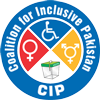Women have a right to engage in civil society, vote in elections, and make their voices heard in any process that ultimately affects them, their families, and communities. In Pakistan, women have minimal opportunities to participate in politics and decision-making. Their right to political and electoral participation is limited, failing gender equality and idealistic democratic governance.
With the total number of registered voters reaching 118.22 million, the gap between male and female voters has climbed up to 12.4 million in Pakistan. However, this gap reduced in 2020. Still, the steps needed to enhance the National Database and Registration Authority (NADRA), Election Commission of Pakistan, and the civil society organizations’ role remains an uphill task.
The Coalition for Inclusive Pakistan (CIP), a rights-based network facilitated by Trust for Democratic Education and Accountability (TDEA), contributes to making the NIC acquisition process more adaptive and convenient for women.
CIP organizations are mobilizing various stakeholders at the local level to commit to advancing women’s rights and ensuring equality and human dignity. The organizations regularly conduct meetings with relevant stakeholders, including heads of various government offices like NADRA and ECP in their respective areas to ensure registration of women as voters. The advocacy meetings are held with political leaders and parliamentarians to engage them in the political mainstreaming of women.
One such CIP advocacy meeting in Narowal with NADRA officials led to 27-year-old Uzma Ejaz acquiring her NIC. Living with her children in Basra Yala Union Council of Narowal City, she had never thought of having a NIC. Also, her family made no effort in this regard.
Uzma says she kept delaying applying for the card because it was difficult and challenging for her to visit the NADRA offices and stand in long queues.
The CIP organization advocated with local NADRA officials at the local level. They agreed to support its women’s NIC registration efforts. Uzma was among the women who visited the nearest NADRA Center and got her NIC.
Uzma has learned that she would be eligible to cast her vote now that she has the identity card. She can also benefit from government healthcare and income programs. “I will vote for my favorite party,” she said excitedly.
However, she assessed that more than 20 percent of the young women aged above 18 years have no NIC, and their families have never thought of registering them. CIP, helped by TDEA, is in contact with NADRA officials urging them to facilitate more women get NICs.






